Meet our Postdoctoral Scholars
Each year the Center on Democracy, Development and the Rule of Law invites several pre and/or postdoctoral scholars to Stanford. Our fellows work in any of the three program areas of democracy, development, and rule of law. Over the course of the academic year, scholars use their fellowship to complete their projects, participate in seminars, and interact with each other and the resident faculty and research staff.
This year we are very excited to have Nathan Grubman, Salma Mousa, and Leah Rosenzweig with us at the Center. We talked to them about their research interests, what they're working on while at Stanford, and why they chose to come to CDDRL.
Nathan Grubman
Yale University
About Nathan:
Nathan expects to receive his PhD in political science from Yale University in December 2020. He is currently working on a book project on the question of why party systems in some new democracies tend to lack left-right cleavages that are often found in established democracies. In particular, he looks at the case of Tunisia after the 2010-11 uprising. Nathan recently presented his research in the talk "Nostalgia and Populisms in Contemporary Tunisia" for the CDDRL Seminar Series.
Why did you choose CDDRL?
"I’ve followed CDDRL for a very long time. It has a unique mix of people who are focused on democracy and democratization in parts of the world where it doesn’t receive as much attention, and scholars focused on democracy in the US as well. I’m also really excited by some of the people at CDDRL—those who focus on the Arab world but also those who focus on Eastern Europe and democratization more generally. They can help me broaden the scope of my research."
Learn more about Nathan's research in this interview with Associate Director for Research Didi Kuo.
Salma Mousa
Stanford University
About Salma:
An Egyptian-Canadian raised in Saudi Arabia, the UAE, Qatar, and Canada, Salma Mousa received her PhD in Political Science from Stanford University in 2020. She is currently working on two research agendas. The first is about the tools and strategies we have for building social cohesion, primarily between migrants and host societies, but also between religious and ethnic groups in the Middle East and the US. Her second research focus is how we can best integrate refugees in the US economically and socially. She will be presenting her research for CDDRL in the upcoming talk "Building Social Cohesion through Soccer in Post-ISIS Iraq".
Why did you choose CDDRL?
"I’ve been floating around CDDRL during my time at Stanford, including teaching for Professor Fukuyama. But for me it was a natural home given that my work is very interdisciplinary. Work on intergroup contact and prejudice reduction and integration has a lot of implications for economics, social psychology, political science, sociology, and I draw on methods and theories from all of these places. At the same time I try to make my work as policy relevant and as situated in the real world with real world interventions as much as possible. To get that interdisciplinary exposure and to have the chance to pick the brains and workshop my ideas with a group of scholars who are so policy oriented really fit my research model."
Hear more about Salma's work in this interview with Mosbacher Director of CDDRL Francis Fukuyama.
-
Leah Rosenzweig
MIT
About Leah:
Leah Rosenzweig holds a PhD in Political Science from MIT. Her current project looks at social voting in semi-authoritarian states. In places where elections aren't competitive why does anyone even vote? Her answer is that there is social pressure--not out of civic duty to the state, but rather to the local community. People see elections as a way to gain benefits and help their local communities. She tests this theory in Tanzania and Uganda. She recently presented her talk "Informing Government Response to COVID-19 in Sub-Saharan Africa" for CDDRL.
Why did you choose CDDRL?
"CDDRL covers a lot of the same themes and topics that I’m interested in within development and democracy. But mostly I was drawn to the interdisciplinary group of scholars engaged in policy-relevant research, whether that’s other political scientists like myself, economists, legal scholars, and others. The environment of all of these really great intellectuals engaging on these topics was what attracted me to the program."
Learn more about Leah and her work in this interview.
The CDDRL Pre and Post Doctoral Fellowship Program is now accepting applications. Please visit this site to learn more about the application process, and contact kdchandl@stanford.edu with any questions.

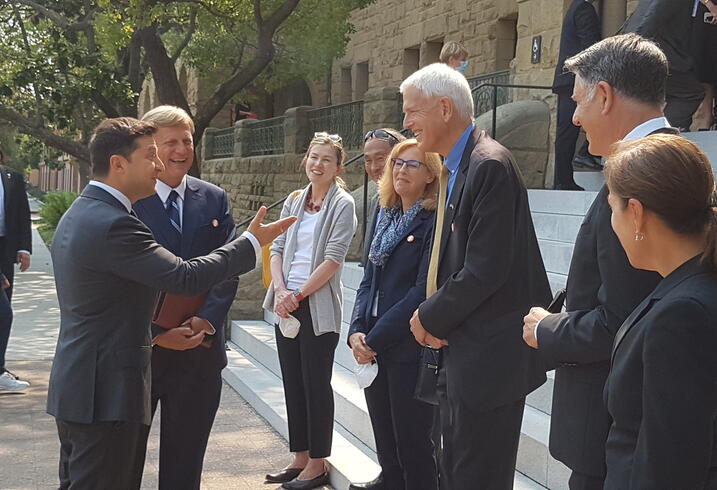

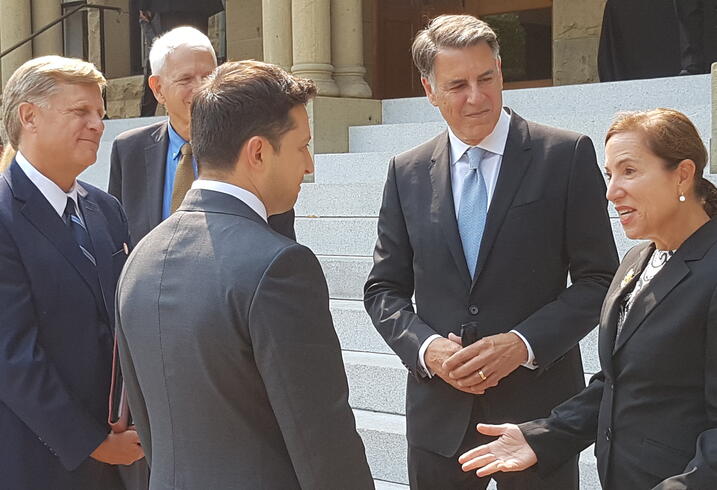

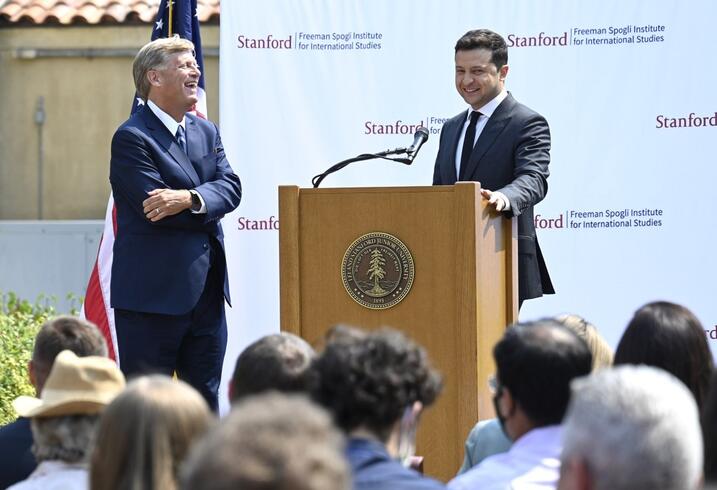









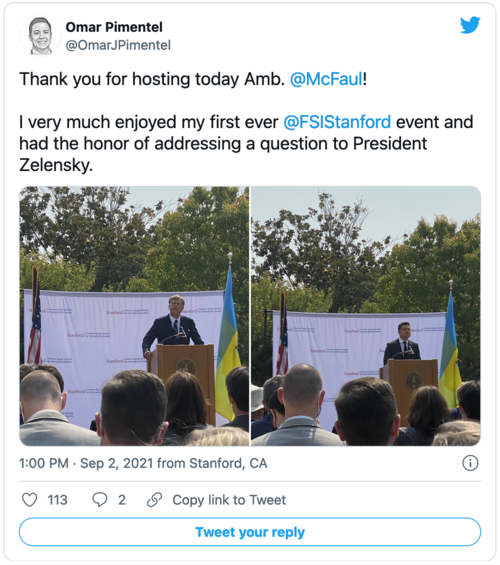
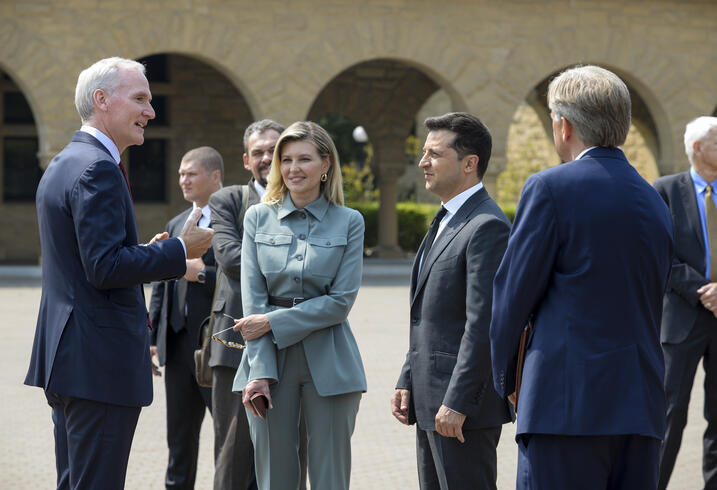
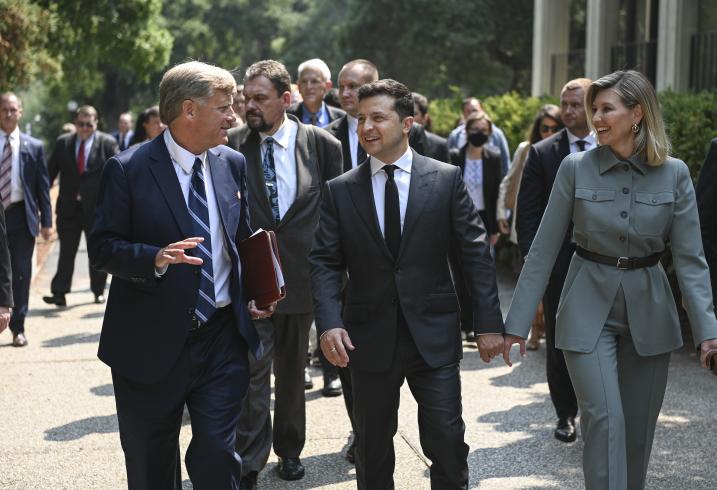
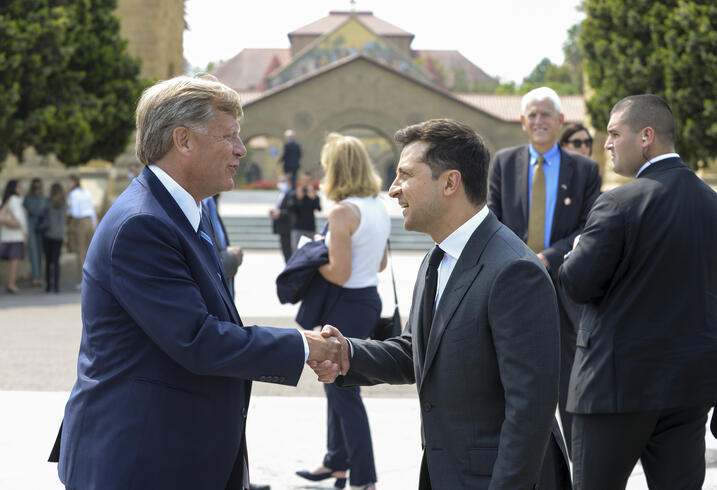
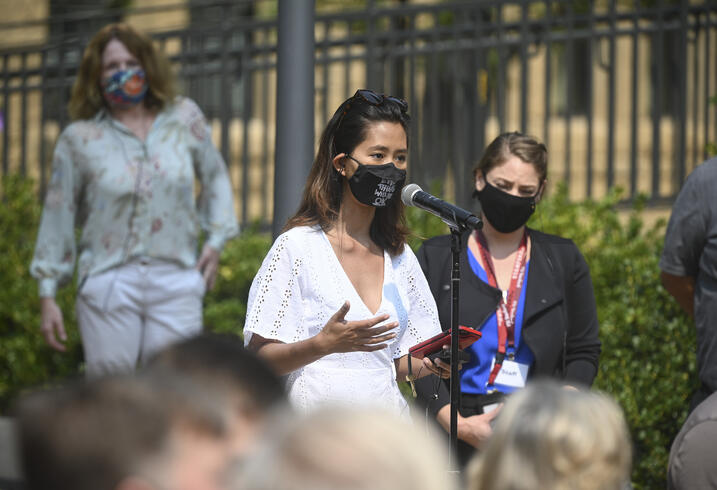











 Yulia Bezvershenko is Director General of Directorate for Science and Innovation at the Ministry of Education and Science. The Directorate was created for policy development and implementation in the research, development and innovation sector.
Yulia Bezvershenko is Director General of Directorate for Science and Innovation at the Ministry of Education and Science. The Directorate was created for policy development and implementation in the research, development and innovation sector. 
 Nariman Ustaiev is co-founder and Director at Gasprinski Institute for Geostrategy. He is also an external advisor for the Committee on Human Rights, Deoccupation and Reintegration of Temporarily Occupied Territories in Donetsk, Luhansk Regions and Autonomous Republic of Crimea, National Minorities and Interethnic Relations of the Verkhovna Rada of Ukraine.
Nariman Ustaiev is co-founder and Director at Gasprinski Institute for Geostrategy. He is also an external advisor for the Committee on Human Rights, Deoccupation and Reintegration of Temporarily Occupied Territories in Donetsk, Luhansk Regions and Autonomous Republic of Crimea, National Minorities and Interethnic Relations of the Verkhovna Rada of Ukraine. 